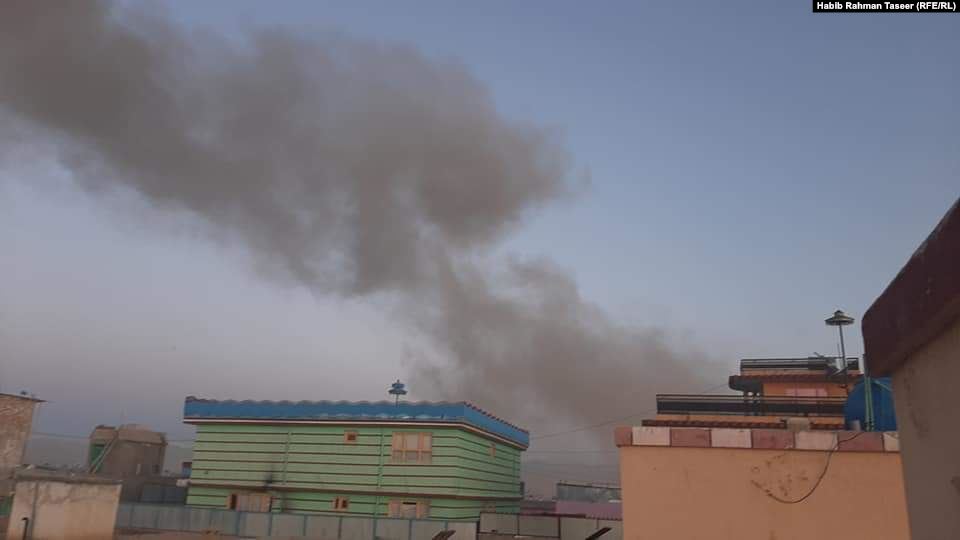On May 18th, a Taliban car-bomb attack left at least 7 dead and dozens injured.
The attack was targeting an intelligence base in eastern Afghanistan.
Arif Noori, spokesman for the provincial governor in eastern Ghazni Province, said a suicide bomber used a stolen military Humvee filled with explosives and detonated it near the entrance to the base.
Noori said seven people were killed and at least 40 others were wounded.
Nasir Ahmad Faqiri, the council chief for the province, confirmed the casualties.
Another official in the Ghazni Province administration, Wahidullah Jumazada, said the attack targeted a unit of the National Directorate of Security in Ghazni city.
“Most of the victims are intelligence personnel,” he added.
The Taliban claimed responsibility for the attack, saying the incident killed or wounded “tens” of special forces.
The attack comes a day after Afghan President Ashraf Ghani and his political rival, Abdullah Abdullah, reached a power-sharing agreement ending a months-long political feud following disputed elections that took place back in September 2019.
Just days earlier, on May 14th, another Taliban attack saw the detonation of a truck close to a military building in Gardez city in southeastern Paktia Province, leaving five dead and 20 injured, including military personnel and civilians.
On May 11th, a Taliban attack on a military checkpoint in eastern Laghman province left 6 dead and 5 injured.
The statement from the Afghan Defense Ministry said the troops pushed back the attackers, adding that the Taliban also suffered casualties but without providing specific figures.
The Taliban said that the attacks are a response to Ashraf Ghani’s order for the Afghan Security forces to go on the offensive against the group.
The US and Taliban are avoiding attacking each-other following an agreement that would eventually lead to a full withdrawal of the US Forces, signed back in February 2020.
In the week before May 11th, U.S. special envoy Zalmay Khalilzad met with Taliban representatives in Doha, the capital of the Gulf Arab state of Qatar, where the insurgents maintain a political office. He stressed the need for a cease-fire, and after Doha, Khalilzad also visited Islamabad and New Delhi to discuss the Afghan peace process with Pakistani and Indian officials.
And another attack took place on May 4th, four bombs, one placed under a garbage bin and the other three by the roadside, went off in northern Kabul, wounding four civilians, including a child, Afghan officials said. The Taliban, however, didn’t claim responsibility for the attack.
An exchange of prisoners between the Afghan government and the Taliban has continued under a deal signed in February between the U.S. and the Taliban in Qatar. The deal stipulates that the government free 5,000 Taliban prisoners while the insurgents are to release 1,000 captives, an exchange that is expected to lead to intra-Afghan negotiations.
The exchange has come in stages and so far, and the government in Kabul says it has freed 1,000 Taliban prisoners. The Taliban have confirmed the release of 300 of their members.
The Taliban say they have freed 225 of captives held by the insurgents, including Afghan defense and security personnel members. The Afghan government confirmed the release of 171 people held by the Taliban, including 105 members of the defense and security forces.
MORE ON THE TOPIC:





“Today, I tell you again that the war in Afghanistan is not our war, but imposed on us and we are the victims, the British and the Americans do not want peace because they have their own agenda and objectives.”
Hamid Karzai 2014